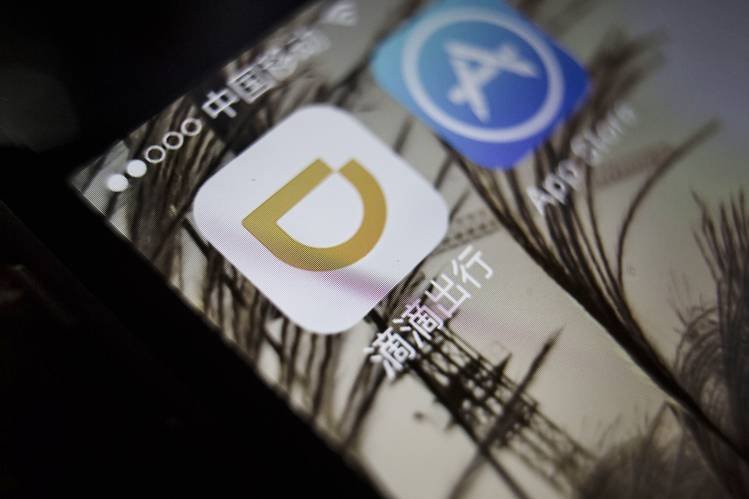China’s Uber Rival Didi Adds Insurer To List Of Powerful Investors

Didi Chuxing Technology Co., China’s largest ride-sharing company, announced the strategic investment from China Life Insurance Co. on Monday, after The Wall Street Journal reported earlier on the deal.
China Life, the country’s largest state-owned insurer, is the latest addition to the list of Didi’s powerful investors, which includes China’s biggest internet giants Alibaba Group Holding Ltd. and Tencent Holdings Ltd. Last month, Apple Inc. joined as an investor, pledging $1 billion to Didi.
Didi has been raising money from investors for a massive financing round that would top $3.5 billion, including the China Life and Apple money, and would value the company at more than $25 billion, people familiar with the matter said. Alibaba and Tencent are boosting their investment in the latest round, the people said.
As the two biggest ride-hailing companies scour the globe for capital, a few of the same investors, such as China Life, are putting money into both companies, highlighting strong interest in one of the most promising areas of mobile-internet services.
China-based investment firm Hillhouse Capital Group was an early investor in Didi, but also led a convertible bond deal to invest in Uber’s global operations. Similarly, Tiger Global Management LLC has backed Didi in China and cut a deal in December for an investment in Uber’s global operations.
Competing startups dislike overlapping shareholder bases because they often share confidential strategy and financial results with investors. It is unclear what arrangements Didi and Uber have made for those investors.
The battle for global investment allies has only intensified in recent months. Uber raised $3.5 billion from the investment arm of Saudi Arabia earlier this month as part of a $5 billion financing round, the largest to date raised by a private, venture-backed company.
As the two biggest ride-hailing companies scour the globe for capital, a few of the same investors, such as China Life, are putting money into both companies, highlighting strong interest in one of the most promising areas of mobile-internet services.
China-based investment firm Hillhouse Capital Group was an early investor in Didi, but also led a convertible bond deal to invest in Uber’s global operations. Similarly, Tiger Global Management LLC has backed Didi in China and cut a deal in December for an investment in Uber’s global operations.
Competing startups dislike overlapping shareholder bases because they often share confidential strategy and financial results with investors. It is unclear what arrangements Didi and Uber have made for those investors.
The battle for global investment allies has only intensified in recent months. Uber raised $3.5 billion from the investment arm of Saudi Arabia earlier this month as part of a $5 billion financing round, the largest to date raised by a private, venture-backed company.
Related News


